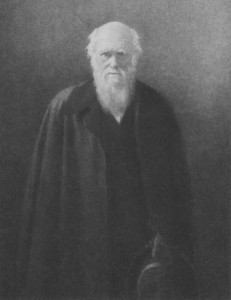
In February, Darwin Day celebrates the contribution that Charles Darwin made to science. On November 24, 1859, he initially published his “On the Origin of Species.” To celebrate the contribution that Darwin made with the revolutionary work, Evolution Day was designated to commemorate its memory. 2015 marks the 159th anniversary. Take time to learn more about Charles Darwin, who is considered the father of evolutionary theory.
Who Is Charles Darwin?
Charles Darwin was born in Shropshire, England, to a wealthy, prominent family. His father seemed to expect young Charles to become a doctor, even though his interests leaned toward natural history. When Charles neglected his studies while at the University of Edinburgh Medical School, his father sent him to Christ’s College, Cambridge, to continue toward a degree, this time with a goal of becoming an Anglican parson. Darwin finished his degree, but he focused on science, believing that the work was a form of religious natural theology.
Once Charles graduated, he joined Captain Robert FitzRoy of the HMS Beagle for what was to be a two-year voyage to chart the coastline of South America. Charles’ father did not want him to go, but eventually was persuaded not only to consent to his son’s participation, but also to fund it. By keeping his funding private, Charles retained control over his collection. The voyage ended up lasting five years and took Charles practically around the world. It began on the coast of Africa in Cape Verde, then continued around South America, Australia, the Cocos Islands, and Cape Town, South Africa.
When Charles returned to England after this voyage, he was somewhat of a celebrity in scientific circles. His letters to one of his professors had been making the rounds. Scientists who worked for museums or universities were often backlogged, which meant their collections sat for years before being cataloged. Charles was able to organize his collection thanks to his father, who helped establish investments for him to be a self-funded scientist.
Developing His Evolutionary Theory
Charles Darwin spent the years after his voyage studying his collection. He worked with other naturalists and scientists to classify each specimen he brought home with him. It took him years to develop his theory. Charles’ family was plagued by illness while he worked on his research. Charles himself was frequently ill, and he lost a daughter and a son to illness. Still, he kept on with his work.
When “On the Origin of Species” was published in 1859, it proved to be very unpopular. Even his wife was concerned that his beliefs might separate them in the afterlife. Charles knew that his theory would create controversy. He could not go to public debates because of his health, but he did try to answer the scientific community.
Acceptance of Evolution?
Although the religious community does not accept evolution, the scientific community was very accepting of Charles and his findings. Before Charles passed away in 1882, he was considered to be one of the great scientists of his time. His legacy lives on in many different ways:
- Darwin Sound, Canada, just one of many geographical features named in his honor
- 120 species named after Darwin
- His writings
- Darwin Day, his birthday in February is still remembered
- Statues and memorials around England
- Darwin College, a division of Cambridge University
Celebrate Evolution Day
Even if you can’t travel to England to view one of the many monuments or displays that gives credit to Charles Darwin, you can celebrate Evolution Day by visiting your local museum of natural history or geology and look for ways that he is mentioned in the exhibits. Get a copy of his book, “The Voyage of the Beagle,” and enjoy his findings as he traveled around the globe. Get informed and know this man who gave so much to science.

